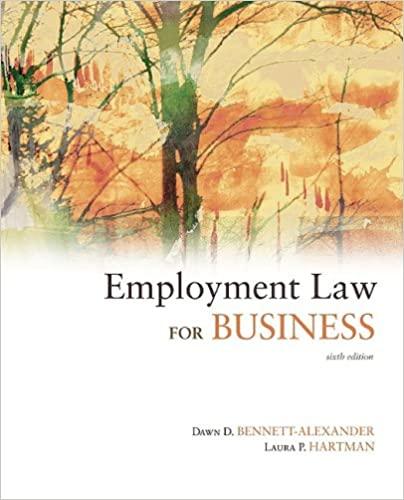1. The court based part of its decision on the fact that FedExs conduct spoke louder than...
Question:
1. The court based part of its decision on the fact that “FedEx’s conduct spoke louder than its words.” Is there any way that words can “un-do” conduct? No matter what the conduct is, can words override conduct under any circumstances, based on the Estrada case?
2. If you were legal counsel to Federal Express before the fact, how might you counsel it to ensure that its original intent would be supported by the court? Is it as basic as allowing drivers to wear socks of the color of their choice (“FedEx’s control over every exquisite detail of the drivers’ performance, including the color of their socks and the style of their hair, supports the trial court’s conclusion that the drivers are employees, not independent contractors”)?
Men and women who apply to FedEx for positions as drivers must complete applications, submit to background checks and strength tests, and satisfy appearance standards. The only required skill is driving and no commercial driving experience is needed . . . Upon acceptance, a driver must execute a nonnegotiable “Pick-upand Delivery Contractor Operating Agreement” that obligates him to “provide daily pick-up and delivery service, and to conduct his . . . business so that it can be identified as being a part of the [FedEx] system.” The Operating Agreement identifies the driver as an “independent contractor, and not as an employee . . . for any purpose,” sets forth the parties’ “mutual business objectives,” notes that “the manner and means of reaching [these objectives] are within the discretion of the [driver],” and states that “no officer or employee of [FedEx] shall have the authority to impose any term or condition [including hours of work or travel routes] contrary to this understanding.”
Step by Step Answer:

Employment Law For Business
ISBN: 978-0077347383
6th Edition
Authors: Dawn Bennett Alexander, Laura P Hartman





